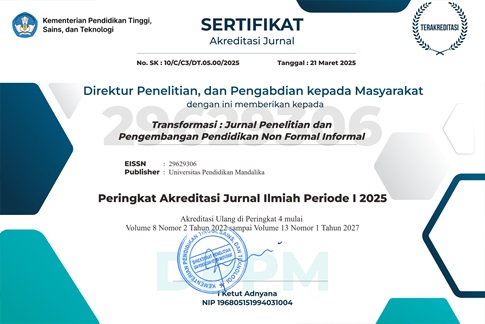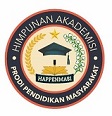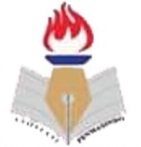Manajemen Kesiswaan Berbasis Teknologi Informasi dan Komunikasi Dalam Meningkatkan Literasi Digital Siswa
DOI:
https://doi.org/10.33394/jtni.v10i2.14516Abstract
Abstract: Digital transformation has become a key catalyst in improving the efficiency and quality of education management. This article highlights the importance of the application of information and communication technology (ICT) in student management to improve students' digital literacy, based on a multisite study at SMP Negeri 5 Mataram. With a qualitative approach, this study explores the process of ICT-based student management transformation, its impact on students' digital skills, and strategies to overcome implementation challenges. The results show that the integration of ICT in student management produces several significant benefits, including increased administrative efficiency, faster data access, and improved students' digital skills in understanding, using, and evaluating digital information critically. However, this implementation also faces obstacles such as resistance to change among teachers, limited infrastructure, and lack of intensive training. With the adoption of a comprehensive change management strategy, including all-stakeholder engagement and infrastructure strengthening, this transformation can be a relevant model to be implemented in other schools. This study makes practical and theoretical contributions to ICT-based educational literature, as well as supporting education digitalization policies to create a digitally literate generation that is competent to face global challenges.
Key Words: Student Management, Information Technology, Digital Literacy, ICT-Based Education.
Abstrak: Transformasi digital telah menjadi katalis utama dalam meningkatkan efisiensi dan kualitas manajemen pendidikan. ArTIKel ini menyoroti pentingnya penerapan teknologi informasi dan komunikasi (TIK) dalam manajemen kesiswaan untuk meningkatkan literasi digital siswa, berdasarkan studi multisitus di SMP Negeri 5 Mataram. Dengan pendekatan kualitatif, penelitian ini menggali proses transformasi manajemen kesiswaan berbasis TIK, dampaknya terhadap keterampilan digital siswa, serta strategi untuk mengatasi tantangan implementasi. Hasil penelitian menunjukkan bahwa integrasi TIK dalam manajemen kesiswaan menghasilkan beberapa manfaat signifikan, termasuk peningkatan efisiensi administrasi, akses data yang lebih cepat, serta peningkatan keterampilan digital siswa dalam memahami, menggunakan, dan mengevaluasi informasi digital secara kritis. Namun, implementasi ini juga menghadapi hambatan seperti resistensi perubahan di kalangan guru, keterbatasan infrastruktur, dan kurangnya pelatihan intensif. Dengan adopsi strategi manajemen perubahan yang komprehensif, termasuk pelibatan seluruh pemangku kepentingan dan penguatan infrastruktur, transformasi ini dapat menjadi model yang relevan untuk diterapkan di sekolah-sekolah lain. Studi ini memberikan kontribusi praktis dan teoretis dalam literatur pendidikan berbasis TIK, sekaligus mendukung kebijakan digitalisasi pendidikan untuk menciptakan generasi melek digital yang kompeten menghadapi tantangan global.
Kata Kunci: Manajemen Kesiswaan, Teknologi Informasi, Literasi Digital, Pendidikan Berbasis TIK.
References
Anderson, T., & Simpson, M. (2012). Online learning models and their impact on literacy development.
Arifin, Z. (2010). Metodologi penelitian kualitatif dalam pendidikan.
Baxter, G., & Sommerville, I. (2011). Socio-technical systems: From design methods to systems engineering.
Buckingham, D. (2015). The future of literacy: Multimodal literacy and digital culture.
Davis, F. D. (1989). Perceived usefulness, perceived ease of use, and user acceptance of information technology. MIS Quarterly, 13(3), 319–340. https://doi.org/10.2307/249008
Davis, F. D. (1989). Technology Acceptance Model (TAM): Perceived usefulness and ease of use.
Eshet-Alkalai, Y. (2004). Digital literacy: A conceptual framework for survival skills in the digital era. Journal of Educational Multimedia and Hypermedia, 13(1), 93–106.
Eshet-Alkalai, Y. (2004). Digital literacy: Conceptual framework and skills.
Fullan, M. (2001). The new meaning of educational change (3rd ed.). Teachers College Press.
Helsper, E., & Eynon, R. (2013). Digital natives: Bridging the digital divide.
Jones, R., & Hafner, C. A. (2021). Understanding digital literacies: A practical introduction.
Kemendikbudristek. (2022). Digitalisasi sekolah: Kebijakan pendidikan di era digital.
Kemendikbudristek. (2022). Digitalisasi sekolah: Kebijakan pendidikan di era digital. Jakarta: Kementerian Pendidikan, Kebudayaan, Riset, dan Teknologi.
Kress, G. (2010). Multimodality: A social semiotic approach to contemporary communication.
McKinsey & Company. (2023). Digital transformation in education: Efficiency and impact.
OECD. (2021). The role of technology in education: Trends and challenges.
Prensky, M. (2001). Digital natives, digital immigrants.
Rogers, E. M. (2003). Diffusion of innovations (5th ed.). Free Press.
Selwyn, N. (2011). Education and technology: Key issues and debates.
UNESCO. (2022). Digital literacy as a 21st-century skill. Paris: UNESCO Publishing.
Venkatesh, V., & Bala, H. (2008). Technology Acceptance Model 3 and a research agenda on interventions.
Vygotsky, L. S. (1978). Mind in society: The development of higher psychological processes. Harvard University Press.
Westerman, G., Bonnet, D., & McAfee, A. (2014). Leading digital: Turning technology into business transformation.
World Economic Forum. (2023). The global digital learning agenda.
Downloads
Published
How to Cite
Issue
Section
Citation Check
License
License Term
Â
This work is licensed under a Creative Commons Attribution-ShareAlike 4.0 International License.











